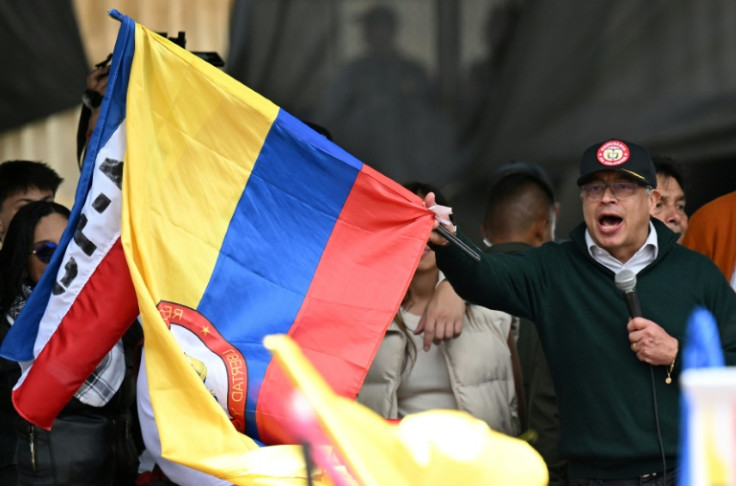
Colombian President Gustavo Petro has vowed to conduct a 'full offensive' against armed group EMC, after a series of clashes between its members and the army over the weekend that left four soldiers dead. The group was also accused of "profaning" the soldiers' corpses.
"There must be a full offensive against EMC at the Cauca region. They are murderers of the people and traffickers. If the president must go there, the president will," Petro said in a publication on X, formerly Twitter.
The country's minister of Defense said that, during the clashes, the army disguised the fallen soldiers' bodies so the surviving members could escape, but the armed group found them.
"This merciless terrorist harasses local communities, orders attacks and beheadings of soldiers, something that constitutes a grave violation of human rights and disregard for international humanitarian law," the ministry said in a publication of its own.
La ofensiva contra el EMC en el Cauca debe ser total. Son asesinos del pueblo y traficantes. Si el presidente tiene que ir, el presidente irá https://t.co/mvL1s3nHlF
— Gustavo Petro (@petrogustavo) May 6, 2024
The document adds that intercepted communications show one of the group's leaders ordering others to behead soldiers. "This is a real fact and will be handed over to competent authorities," said general Helder Hiraldo about Colombia's intention of sharing the information with international organizations.
Petro's response to the killings marks a stark contrast with his initial approach of "total peace," one of his campaign rallying cries. It also comes a few days after the president revealed that hundreds of thousands of ammunition rounds, missiles and anti-tank weapons are missing from two military bases in the country.
Speaking alongside Defense Minister Iván Velásquez and Army Chief Luis Mauricio Ospina, Petro said last week that recipients could include both local and foreign criminal organizations, including those currently sowing chaos in Haiti.
Local outlet El Tiempo detailed all the weapons missing from the military bases located in Tolemaida and La Guajira, including about 20,000 grenades, almost 40,000 anti-tank loads, two spike missiles and 37 nimrod missiles, as well as 550 RPG rockets.
"This shows that mobs have penetrated our institutions through false ideologies. That ammo might be killing our law enforcement officials, our citizens and, perhaps, young people and those in Haiti and elsewhere in the world."
Colombia has had one of the longest internal armed conflict in the world for decades. Most of the time the conflict has been labeled as a low-intensity one, with flare-ups over the years.
After a largely peaceful period following a peace agreement with the largest armed group, FARC, in 2016, violence has climbed again in the past months, with a 36% inter-annual increase of such events registered in the first quarter of 2024, according to a UN report. The document registered 272 violent episodes, including cease-fire violations and direct attacks
© 2024 Latin Times. All rights reserved. Do not reproduce without permission.







